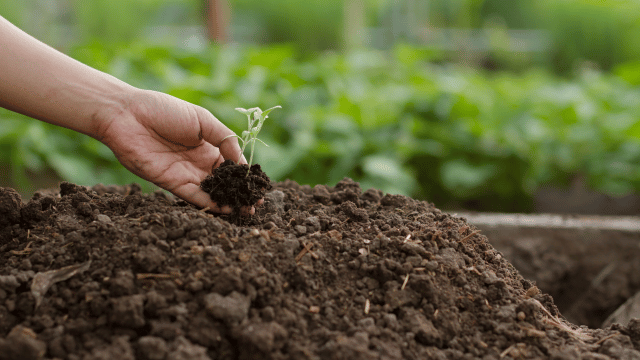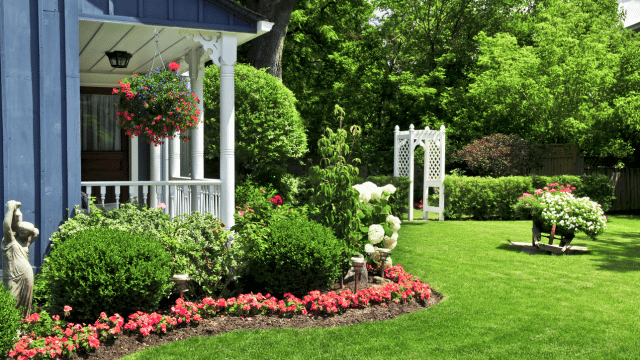As a beginner gardener, stepping into the world of gardening can be both exciting and overwhelming. The thought of cultivating your own garden filled with beautiful plants can bring a sense of joy and accomplishment. However, with so many options available, it can be difficult to know where to start. In this article, I will guide you through the process of choosing the perfect garden plants for beginners, ensuring that your gardening journey is a successful one.
Benefits of Starting a Garden
Before we dive into the specifics of choosing garden plants, let’s take a moment to explore the benefits of starting a garden. Gardening is not only a rewarding hobby, but it also offers a multitude of advantages. Firstly, it allows you to connect with nature and create a peaceful sanctuary right in your own backyard. Secondly, gardening promotes physical activity, helping you stay active and fit. Additionally, growing your own fruits, vegetables, and herbs can save you money and provide you with fresh, organic produce. Lastly, gardening has been proven to reduce stress and improve mental well-being. With these benefits in mind, it’s clear why starting a garden is a fantastic endeavor for beginners.
Factors to Consider When Choosing Garden Plants
As a beginner gardener, it’s important to consider certain factors before selecting plants for your garden. Firstly, assess the amount of sunlight your garden receives. Some plants thrive in full sun, while others prefer shade. Understanding the sunlight requirements of your garden will help you choose plants that will flourish in your specific environment. Secondly, consider the climate in which you live. Not all plants can tolerate extreme temperatures or humidity levels. Researching plants that are well-suited to your climate will ensure their survival. Lastly, think about the amount of time and effort you are willing to dedicate to your garden. Some plants require more maintenance than others. By considering these factors, you can narrow down your options and choose plants that are suitable for your garden and lifestyle.
Easy-to-Grow Plants for Beginners
As a beginner, it’s wise to start with plants that are known for their resilience and adaptability. Here are a few easy-to-grow plants that are perfect for beginners:
Marigolds: These vibrant flowers are not only beautiful but also repel pests, making them an excellent choice for beginners.
Zinnias: Zinnias are low-maintenance flowers that come in a variety of colors. They are drought-tolerant and attract butterflies, adding beauty and biodiversity to your garden.
Tomatoes: Growing your own tomatoes is a rewarding experience. They are relatively easy to grow and provide a bountiful harvest throughout the season.
Basil: This aromatic herb is a staple in many kitchens. It thrives in both containers and garden beds, making it a versatile choice for beginner gardeners.
Flowers for Beginner Gardeners
Flowers are a popular choice for beginner gardeners due to their beauty and ability to attract pollinators. Here are some flowers that are well-suited for beginners:
Sunflowers: Sunflowers are not only stunning but also easy to grow. They add a cheerful touch to any garden and can reach impressive heights.
Petunias: Petunias come in a wide range of colors and are known for their ability to bloom throughout the summer. They are low-maintenance and perfect for adding vibrant splashes of color to your garden.
Cosmos: Cosmos are delicate flowers that require minimal care. They come in various shades and attract butterflies and hummingbirds, creating a lively and enchanting garden.
Vegetables and Herbs for Beginner Gardeners
Growing your own vegetables and herbs is not only rewarding but also allows you to enjoy fresh, flavorful produce. Here are a few vegetables and herbs that are beginner-friendly:
Lettuce: Lettuce is a fast-growing vegetable that can be easily grown from seeds. It thrives in cooler weather and can be harvested multiple times throughout the season.
Cucumbers: Cucumbers are prolific growers that require little maintenance. They are perfect for pickling or adding a refreshing crunch to salads.
Mint: Mint is a versatile herb that can be grown in containers to prevent it from spreading. It adds a refreshing flavor to beverages and is a great addition to any herb garden.
Indoor Plants for Beginners
If you don’t have access to an outdoor garden or have limited space, don’t worry! Indoor plants are a fantastic option for beginners. Here are a few indoor plants that are low-maintenance and perfect for beginners:
snake Plant: Snake plants are known for their ability to thrive in low-light conditions and require minimal watering. They also help purify the air, making them a great addition to any indoor space.
ZZ Plant: The ZZ plant is virtually indestructible and can tolerate a wide range of light conditions. It requires very little water and adds a touch of greenery to any room.
Pothos: Pothos is a trailing plant that is incredibly easy to care for. It can be grown in a hanging basket or on a shelf, adding a cascading effect to your indoor space.
Tips for Maintaining and Caring for Garden Plants
Once you have chosen your garden plants, it’s important to provide them with the proper care and maintenance. Here are a few tips to help you keep your plants thriving:
Watering: Each plant has different watering requirements. Research the specific needs of your plants and ensure they receive the appropriate amount of water.
Fertilizing: Some plants benefit from regular fertilization. Use organic fertilizers to nourish your plants and promote healthy growth.
Pruning: Pruning helps maintain the shape and health of your plants. Remove dead or damaged foliage and encourage new growth.
Resources for Beginner Gardeners
If you’re looking for additional resources and support on your gardening journey, there are plenty of options available. Here are a few resources that can help:
Online Gardening Communities: Joining online gardening communities allows you to connect with experienced gardeners who can offer advice and support.
Gardening Books: There are numerous gardening books available that provide in-depth information on various aspects of gardening. These books can serve as valuable references.
Local Nurseries: Visiting your local nursery can provide you with access to knowledgeable staff who can offer guidance on plant selection and care.
Conclusion
Embarking on your gardening journey as a beginner can be a fulfilling and enjoyable experience. By considering factors such as sunlight, climate, and maintenance, you can choose plants that are well-suited for your garden and lifestyle. Whether you opt for vibrant flowers, delicious vegetables, or low-maintenance indoor plants, remember to provide them with the care they need to thrive. Utilize the resources available to you, and don’t be afraid to ask for help along the way. Happy gardening!


